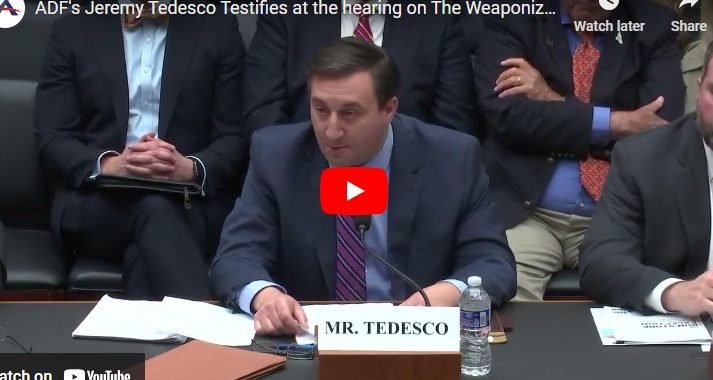Arkansas A.G. Joins Letter Asking Bank of America to Come Clean About Debanking

Earlier this month Arkansas Attorney General Tim Griffin signed a letter alongside 14 other state attorneys general asking Bank of America to come clean about its “debanking” practices.
The letter says,
Bank of America appears to be conditioning access to its services on customers having the bank’s preferred religious or political views. This is inconsistent with your bank’s promise to uphold “the highest standards of corporate governance and ethical conduct[, including] efforts to always do business the right way for [its] customers.”1 Surely Bank of America would not say that denying service to clients for exercising their civil liberties is doing “business the right way for [its] customers.”
Your discriminatory behavior is a serious threat to free speech and religious freedom, is potentially illegal, and is causing political and regulatory backlash. Your bank needs to be transparent with and assure us, its shareholders, and others that it will not continue to de-bank customers for their speech or religious exercise
The letter goes on to cite past examples of politicized debanking — and how debanking may run afoul of the law.
Family Council has written repeatedly about how de-banking hurts charities, conservative causes, and people of faith.
For example, in 2021, our credit card processor — a company owned by Chase Bank — canceled our account with virtually no notice and no explanation.
In 2022, Chase abruptly closed the account of Ambassador Sam Brownback’s National Committee for Religious Freedom with little warning or explanation, and PayPal similarly disabled the account of a group called the Free Speech Union.
Last month the U.S. House of Representatives Judiciary Committee and the Select Subcommittee on the Weaponization of the Federal Government released a report indicating the federal government actually weaponized banks against conservatives following the events of January 6, 2021.
The report shows that federal law enforcement officials from the Treasury Department and the FBI quietly contacted financial institutions to discuss ways financial institutions could share customer information with federal law enforcement outside of normal legal processes.
The U.S. Treasury Department gave banks and other financial institutions guiding “typologies” — patterns that could be used to identify suspicious people or activities — including search terms and patterns like “TRUMP” and “MAGA.”
The Treasury also encouraged financial institutions to comb through transactions for terms like, “Bass Pro Shops,” “Cabela’s,” and “Dick’s Sporting Goods” when looking for “Homegrown Violent Extremism.”
The report further revealed the Treasury Department provided banks and financial institutions with information listing legitimate, conservative groups such as Alliance Defending Freedom, American Family Association, Family Research Council, and many others as “Hate Groups” alongside the KKK and the American Nazi Party.
And last month testimony at congressional committee meetings further explained how banks and other financial institutions may abuse their power.
It is nearly impossible for a church, business, charity, or family to function in modern American society without a bank account. That’s one of the reasons why there are so many laws regulating the banking industry — and it’s part of the reason why debanking is so dangerous.
Nobody should have their bank account canceled because of what they believe.
We appreciate Attorney General Griffin’s willingness to stand up for transparency and accountability at Bank of America and in the financial industry.
Articles appearing on this website are written with the aid of Family Council’s researchers and writers.




